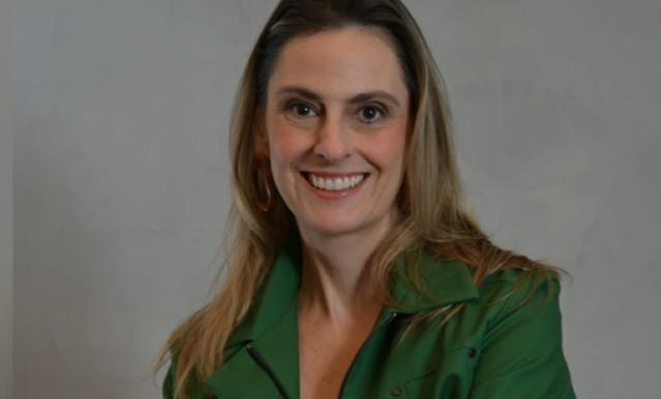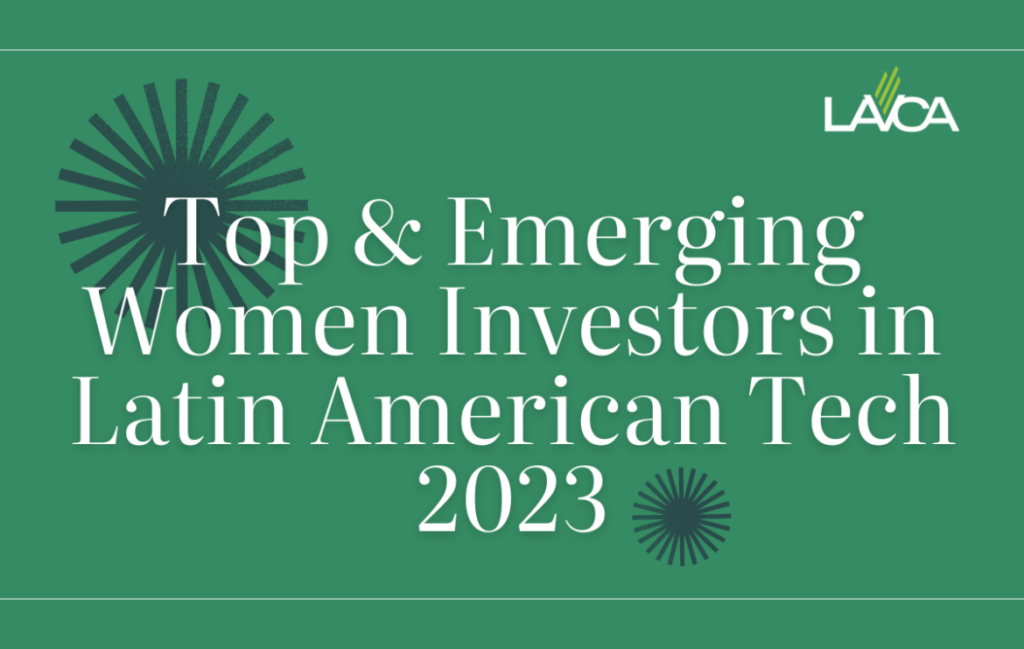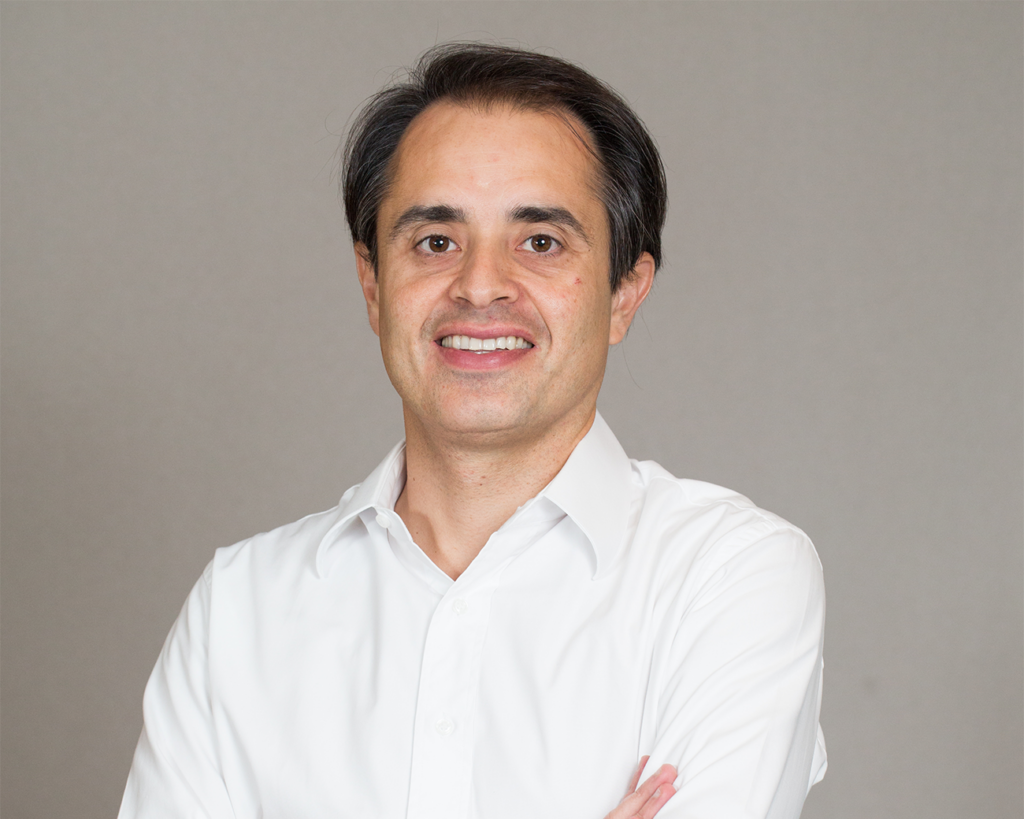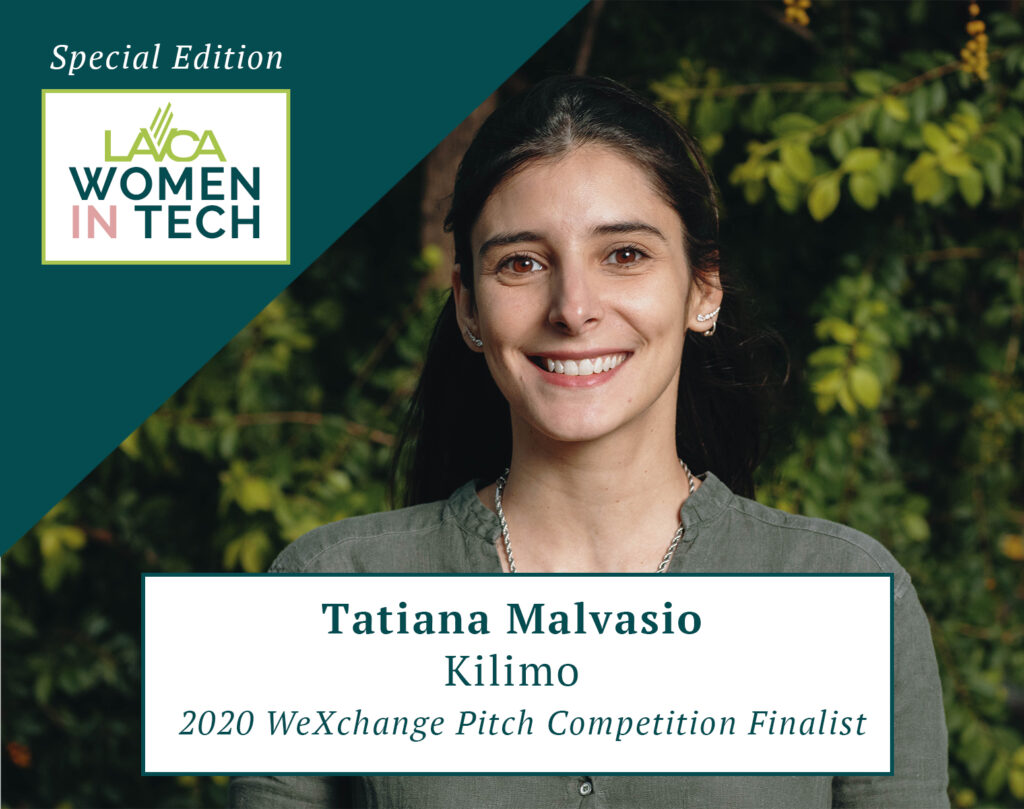Gender Diversity, Member Profiles
Maria Pia Iannariello, MGM Innova Capital
9 February 2021

Member: MGM Innova Capital
Executive: Maria Pia Iannariello, Co-Founder & COO
News Coverage: Search LAVCA
LAVCA recently spoke with Maria Pia Iannariello, Co-Founder & COO of MGM Innova Capital, about the opportunity for private capital and green infrastructure in Latin America.
The growing energy demand and the abundance of renewable energy resources coupled with an increasing awareness of the need for investing in sustainable solutions makes Latin America an attractive destination for green investments.
Iannariello also discusses how the firm’s investment strategy has shifted as a result of the current environment, highlights attractive sectors in the region, and provides a “sneak peek” at MGM Innova Capital’s current pipeline.
We have identified opportunities in sectors where high growth companies could benefit from our business model, such as telecommunications, where we see potential in energy storage solutions for remote communications towers, and in the foodtech and biotech industries, where there is a need for refrigerated storage facilities.”
LAVCA: Please provide some background on MGM Innova Capital. As one of the co-founders, what was the driving force behind the creation of this firm?
Iannariello: Marco Monroy and I founded MGM Innova Capital in 2010 as a natural next step in our quest to develop financial solutions to contribute toward the achievement of climate change mitigation goals. After being major players in the global carbon market since its inception 20 years ago, we decided that addressing the equity needs of commercially attractive sustainable energy projects would be a concrete way to materialize what was often overlooked by prior market mechanisms. Given our shared roots in Latin America, it was an attractive proposition for us to focus our efforts on this region.
In contrast to typical private equity, we invest mainly in projects that produce renewable energy and/or generate energy savings. Our portfolio investments take the form of energy sales under energy service models so that an investee pays for new equipment over time per unit of energy that they consume, thus minimizing technological adoption-related risks and saving on upfront capital costs and ongoing maintenance. These portfolio investments tend to be structured as leasing and/or renting agreements tailored to local regulations.
LAVCA: You invest in energy efficiency and renewable energy projects in Latin America. What makes the region an attractive destination for green investments?
Iannariello: Latin America’s energy demand is growing at a rate that outpaces energy supply. However, the region is rich in renewable energy resources, such as solar, biogas, and biomass (from agriculture and food processing industries) that can contribute toward satisfying energy demand needs in a sustainable manner. The existing energy infrastructure in the region is often obsolete and poorly maintained, and while cleaner, more cost-efficient technologies are available, these face major barriers to financing and deployment at scale. To address this, some countries in the region are now offering accounting, tax, and other regulatory incentives to encourage the deployment of clean and efficient technology.
This growing energy demand and the abundance of renewable energy resources coupled with an increasing awareness of the need for investing in sustainable solutions makes Latin America an attractive destination for green investments.
LAVCA: MGM Innova has successfully invested US$70m in 28 projects across Colombia, Mexico, Brazil, Panama, El Salvador, and Costa Rica through MGM Sustainable Energy Fund (MSEF). Has your strategy shifted in light of the current environment and currency considerations? Have certain sectors or valuations become more attractive?
Iannariello: We have adjusted our investing strategy to compensate for increased levels of risk associated with business disruption or discontinuity, foreign currency volatility, and lower energy prices.
In particular, we have chosen to prioritize investments in sectors that have proven to be resilient to the pandemic and/or that have had the ability to adapt their operations to succeed in spite of COVID-19-related restrictions and as such have been able to maintain a stable level of operations. Examples include retail and industrial facilities belonging to sectors deemed essential.
Specifically, the food processing industry has shown resilience to the economic slowdown along with supermarket retailers, as such, we have prioritized the installation of energy efficient refrigeration equipment at Justo & Bueno warehouses and retail outlets in Colombia and Panama. At this time, we are also evaluating investment opportunities with Ginafruit in Ecuador, Euro Supermarkets in Colombia, and Merqueo for their warehouses in Colombia and Mexico as they continue to expand.
Just as relevant as prioritizing investments in essential sectors, has been the design of contractual structures that allow us to hedge foreign currency exposure. We are prioritizing investments where we can dollarize contracts or design partial contractual hedges that allow for periodic adjustments to investment cashflows based on exchange rate volatility and/or inflation. Furthermore, we are taking an equity position in some companies to complement our typical renting, pay-as-you-go agreements, and securing local currency financing to leverage our investments in order to enhance returns.
LAVCA: You recently closed your MGM Sustainable Energy Fund II. How has your investor base evolved since you closed MSEF in 2015 and have you seen increased appetite from international LPs for green investments in Latin America?
Iannariello: We see distinct appetite from international investors that are multilateral or bilateral DFIs and governments with a strong commitment to climate change mitigation, as well as increasing interest from the private sector. Multilateral development banks and agencies from Colombia, Spain, Germany, Japan, the EU, and Latin America are among the investors in our first fund. MSEF II added additional investors from Belgium, France, and the Netherlands to our base, almost doubling the fund size. All of our LPs are deeply committed to proving that climate investments can also be commercially profitable and highly replicable.
LAVCA: You recently provided US$16m in debt financing to Colombian foodtech RobinFood (formerly Muy). How does this investment fit into your investment strategy and do you have plans to expand your mandate to include more tech-enabled companies?
Iannariello: RobinFood is representative of our investment strategy: We invest in companies (including early-stage, high-growth companies) in the food & beverage sector looking to optimize energy consumption through the implementation of energy-efficiency measures and the acquisition of cutting-edge technology for cooling, refrigeration, and cooking in order to further their sustainability goals and expand their operations. Our business model is particularly attractive to these companies because we take on the cost of the initial capital outlay as well as any risks related to the implementation, operation, and maintenance of the new technology. This approach allows our investee companies to devote their capital and resources to growing their core business.
The transaction with RobinFood was structured as a lease of energy-efficient equipment to be installed in their facilities throughout Colombia, Mexico, and Brazil. The transaction will be complemented with an equity investment to hedge foreign currency exposure and potentially enhance returns at time of exit.
In addition to RobinFood, the fund has closed similar deals with Merqueo, an online supermarket with operations in Colombia, Mexico, and Brazil; Justo & Bueno, REVE Group’s deep discount supermarket in Colombia and Panama; and Muncher, a ghost kitchen company operating in Colombia, Mexico, Peru, and Brazil.
LAVCA: What is your typical ticket size and what does your current pipeline look like? Can you give us a “sneak peek” at future deals/allocations in Latin America?
Iannariello: Our typical ticket size is roughly US$5m in equity, with each investment ranging from a minimum of US$500k to a maximum of US$15.5m. Opportunities in the pipeline include: the leasing of energy efficient refrigeration units, commercial ovens, air conditioning systems, and more to industrial and commercial sectors throughout the region; cogeneration projects at industrial facilities in Mexico and Colombia; solar rooftop projects in the residential and commercial sectors in Mexico and Brazil; and combined solar/battery projects throughout Central America.
LAVCA: You have an established track record of developing renewable energy- and energy efficiency-based solutions, which other areas have you identified as having similar potential?
Iannariello: While, per our mandate, our focus remains on the development of financial solutions for the implementation of renewable energy projects and energy efficiency measures in the region, we continue to look for additional sectors or industries where these technologies could be further applied.
We have identified opportunities in sectors where high growth companies could benefit from our business model, such as telecommunications, where we see potential in energy storage solutions for remote communications towers, and in the foodtech and biotech industries, where there is a need for refrigerated storage facilities.
High growth companies in these sectors are, in general, cash constrained and focused on expanding the business, as such, building energy infrastructure is a distraction for both their capital and resources. Our business proposition provides them with the ability to outsource investments in energy infrastructure to us as the company continues to grow. This structure allows the company to access and pay for cutting-edge, cost-efficient technology over time as it is delivered/consumed, limiting initial capital outlays, technology risk, and maintenance costs.
LAVCA: According to LAVCA’s Mid-Year 2020 Data, despite the difficulties introduced by COVID-19, Latin America private capital fundraising increased by 30% in 1H2020, compared to 1H2019, and exits for the region accelerated to US$5.1b, the best first-half total since 2011. In your experience, how have Latin American markets fared during the ongoing the crisis?
Iannariello: It is unclear to us the extent to which Latin America has been resilient to the crisis. Economic indicators show mixed signals and we believe it will take a while for the region to recover from this prolonged period of uncertainty. We are cognizant, however, that a crisis brings great opportunities, and we believe that is what private equity results and data show. A number of the transactions that were completed in 2020 could have been at advanced stages before the pandemic hit and as such, were still able to close. This was our experience. In other instances, the reaction was opportunistic, as sectors that showed resilience or even benefited from the crisis became increasingly attractive to capital investors honing in on a narrower pool of promising opportunities available.
LAVCA: In Latin America as well as across the world women are underrepresented in the private capital industry. As a successful woman founder in this field, what advice do you have for women looking to become a leader in the industry, especially in Latin America and the Caribbean?
Iannariello: Women continue to be underrepresented in leadership roles, not only in the private capital industry, but in finance at large. The private capital industry, specifically, is a demanding, competitive industry that requires you to make personal sacrifices, work very hard, be assertive and tenacious, and often take risks that put you outside of your comfort zone. When I started out in this industry I knew the bar for women was higher, but I chose not to let that discourage me. Instead, I kept working hard to earn the respect, trust, and authority necessary to succeed in this industry.
Thankfully, this is changing fast and in a positive direction. The pandemic has helped in making people more aware of the obstacles and personal sacrifices a woman regularly makes to manage both work and family. I also believe that flexible remote work policies as we have experienced them in the past year will help rather than deter women from advancing to leadership roles.
LAVCA: MGM Innova Capital has been a member of LAVCA since 2017. Why did you join the organization?
Iannariello: We joined LAVCA because of its extensive network platform and its ability to facilitate connections with industry peers and valuable business contacts. LAVCA also offers unique resources to help us learn about industry trends and opportunities, and we appreciate LAVCA’s regional approach and local knowledge.
Prior to joining LAVCA, we had found navigating traditional private equity platforms challenging, mainly because we are relatively new to the industry with a relatively uncommon investment thesis. LAVCA has been proactive in understanding and identifying synergies between our model and that of industry peers while providing valuable information and facilitating industry connections.
You may be interested in...
-

Luciana Antonini Ribeiro, eB Capital
Executive: Luciana Antonini Ribeiro, Co-Founder and CIO Member Name: eB Capital Year...
-

Top & Emerging Women Investors in Latin American Tech 2023
View LAVCA’s list of Top Women Investing In Latin American Tech. Women in venture...
-

Cristiano Gioia Lauretti, Kinea Private Equity
Member: Kinea Executive: Cristiano Gioia Lauretti, Head of Private Equity HQ: São...
-

Satellite Analytics & Irrigation Systems: Interview with Kilimo COO Tatiana Malvasio
Company: Kilimo Investors: NXTP Ventures, Alaya Capital, The Yield Lab, Xpand...